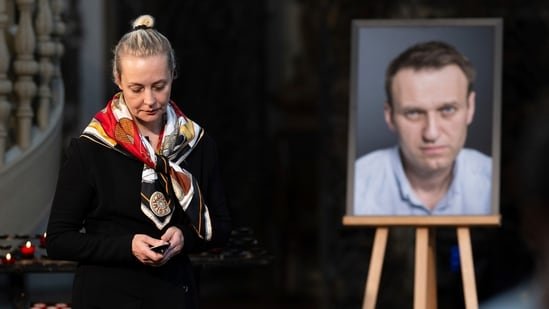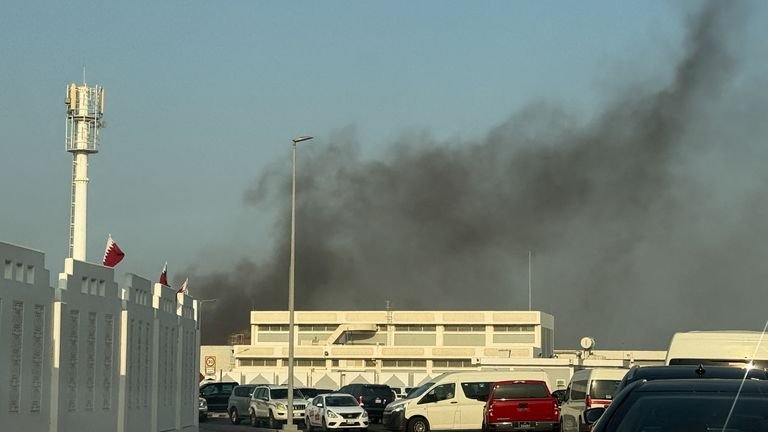Allegations of Poisoning Surround Alexei Navalny’s Death
The tragic demise of Alexei Navalny, a prominent Russian opposition leader and vocal critic of President Vladimir Putin, has taken a dark turn with new allegations of foul play. On Wednesday, Yulia Navalnaya, Navalny’s wife, revealed that laboratory analyses of biological samples smuggled out of Russia indicate he was poisoned while imprisoned in an Arctic facility in February 2024. This shocking claim has reignited discussions about the Kremlin‘s treatment of dissenters and the lengths to which it may go to silence opposition.
Background on Navalny’s Activism
Navalny, known for his charismatic anti-corruption campaigns, had been a thorn in the side of the Russian government for years. His efforts to expose the alleged corruption within Putin’s inner circle mobilized hundreds of thousands of Russians in protests against the regime. His activism reached a critical point in 2020 when he was poisoned with a Novichok nerve agent while campaigning in Siberia. After a harrowing evacuation to Germany, he spent months recovering before returning to Russia in January 2021, where he was promptly arrested and sentenced to a lengthy prison term on charges widely regarded as politically motivated.
Details Surrounding His Death
Navalny’s death on February 16, 2024, was shrouded in mystery. Official reports from Russian authorities stated that he fell ill while walking in the prison yard, but the circumstances surrounding his sudden demise raised eyebrows among his supporters. Yulia Navalnaya claimed that before her husband’s burial, his allies managed to secure biological samples that were subsequently analyzed in laboratories abroad. In a video posted on social media, she stated, “Laboratories in two countries came to the conclusion that Alexei was killed. Specifically: poisoned.”
While she did not disclose the specific details of the samples or the poisons identified, she urged the laboratories to release their findings publicly. This call for transparency reflects a broader demand for accountability regarding the treatment of political prisoners in Russia.
Suspicious Circumstances and Kremlin’s Response
Adding to the intrigue, Navalnaya shared unverified images purportedly showing his prison cell after his body was removed, including a disturbing pool of vomit on the floor. She also claimed that prison officials testified he had been convulsing prior to his death. When questioned about these allegations during a daily briefing, Kremlin spokesman Dmitry Peskov declined to comment, a response that many interpret as an attempt to deflect scrutiny.
Historical Context of Political Repression
The allegations surrounding Navalny’s death are not isolated incidents but part of a broader pattern of political repression in Russia. Since the annexation of Crimea in 2014 and the subsequent invasion of Ukraine in 2022, the Kremlin has intensified its crackdown on dissent. Public displays of opposition have become increasingly rare, with the government implementing stringent censorship laws and targeting critics with legal repercussions. Navalny’s case exemplifies the risks faced by those who dare to challenge the status quo.
Accusations Against the Kremlin
Yulia Navalnaya has been vocal in her accusations against Putin, asserting that he is directly responsible for her husband’s death. “Vladimir Putin is guilty of the murder of my husband, Alexei Navalny,” she stated emphatically. This assertion aligns with the sentiments of many of Navalny’s supporters, who believe that the Kremlin orchestrated his demise to eliminate a significant threat to its power.
In the wake of Navalny’s death, the Russian government has continued to escalate its crackdown on his allies and supporters. Many have been added to a “terrorists and extremists” blacklist, and several of his lawyers and journalists covering his cases have received lengthy prison sentences. This ongoing repression has forced many of Navalny’s key allies to seek refuge abroad, further fragmenting the opposition movement.
The State of the Russian Opposition
The Russian opposition, already weakened by infighting and repression, faces an uphill battle in the wake of Navalny’s death. The loss of such a prominent figure has left a void that is difficult to fill. Many opposition leaders have been forced into exile, and those remaining in Russia operate under constant threat of arrest and persecution. The environment for dissent has become increasingly hostile, with the Kremlin effectively outlawing criticism of both the government and its military actions in Ukraine.
Conclusion
The allegations surrounding Alexei Navalny’s death raise serious questions about the Kremlin’s commitment to human rights and the treatment of political prisoners. As Yulia Navalnaya calls for transparency and accountability, the international community watches closely, aware that the implications of this case extend far beyond one man’s tragic end. The struggle for democracy and freedom of expression in Russia continues, but the path forward remains fraught with danger for those who dare to oppose the regime.











